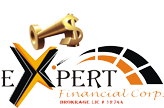Are you looking for a mortgage but don't want to get stuck with a high-interest rate or bad credit score? Consider getting a Private Mortgage! A Private Mortgage is a type of loan provided by private lenders rather than a bank or other financial institution.
Private Mortgages often offer higher loan amounts, hassle-free processing &quick turnaround than traditional mortgages, making them an attractive option for many Canadians.
What Is A Private Mortgage?
A private mortgage is a loan that is offered by an individual or small business entity rather than a traditional financial institution like a bank. This type of mortgage can have a lower interest rate than conventional mortgages.
They also provide a viable alternative for those who may not qualify for traditional financing, are looking for lower interest rates, or don't have time to wait for the process to be completed. Private mortgages are popular in Canada & can help you get the financing you need quickly.
The Benefits Of A Private Mortgage
• Quicker Approval Times: Private mortgages are often much quicker to get approved compared to traditional mortgages, with some taking as little as 24- 48 hours.
• Lower Credit Requirements: Many private lenders require less stringent credit requirements than banks, so those with lower credit scores may be able to get approved.
• Flexible Payment Options: Private mortgage lenders are often more flexible when it comes to payment options and can offer payment holidays or adjust the payment schedule.
• Lower Interest Rates: Private mortgage lenders often offer lower interest rates than traditional banks, allowing borrowers to save money over time.
How Do Private Mortgages Work?
Private mortgages can typically have shorter repayment terms, allowing borrowers to pay back the loan faster with higher monthly payments. These loans are generally secured by a deed of trust or other collateral, such as the
borrower's house.
The actual interest rate on these loans can be lower than that of traditional mortgages, & can also provide more flexible terms, allowing borrowers to get their finances back in order.
Are There Any Risks Associated With Private Mortgages?
Yes, as with any loan, there are always risks associated with taking out a
private mortgage. It's important to make sure you understand all of the terms
and conditions of the loan before you sign any documents.
Additionally, it's important to compare the interest rates and repayment terms
offered by different lenders to make sure you're getting the best deal possible.
How Do I Find A Private Lender?
There are several ways to find private lenders. You can search online or contact a local mortgage broker who may be able to provide you with more information about available lenders in your area.
The most reliable & easiest way to find suitable private mortgages is to consult an accomplished Broker like Upanshuman Pandey at Expert Financial Corp, who is well-versed in the technicalities & operations of the Mortgage industry.
Who Can Apply For A Private Mortgage?
Anyone looking to finance or refinance a property can apply for a private mortgage. Applicants must be of legal age and have a fair credit score or equity in the property they are financing or refinancing. It's also important to note that private lenders have their own guidelines for approving loans.
So, even if you meet the criteria, it doesn't necessarily mean you'll be approved for the loan. It's always a good idea to talk to a seasoned Broker like Upanshuman Pandey at Expert Financial Corp to understand Private Mortgage requirements and what they will need from you before you start the loan application process.
